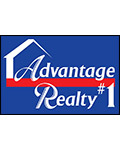 Real estate investing as a broad term encompasses everything from single or multi-family residential all the way through commercial high-rise office space. Included somewhere in the middle is a lesser-known niche focus of mobile home investing. Often overlooked by many real estate investors, mobile home park ownership is simply another investment vehicle provided by real estate ownership.
Real estate investing as a broad term encompasses everything from single or multi-family residential all the way through commercial high-rise office space. Included somewhere in the middle is a lesser-known niche focus of mobile home investing. Often overlooked by many real estate investors, mobile home park ownership is simply another investment vehicle provided by real estate ownership.
Types of Mobile Home Park Ownership
First, let’s define exactly what it means to be a mobile home investor. There are two different forms of ownership:
- One form of ownership involves the investor owning the lots underneath the individual homes, and the land surrounding the lots such as the streets, utility systems, club houses, swimming pools and other amenities. In this form of ownership, the tenant owns their home and pays only for the right to occupy the land where their home is located plus the use of the facilities. This type of investing is literally investing in the “parks” vs. the mobile homes themselves.
- The other type of mobile home ownership involves the investor owning not simply the land, but also the actual homes. In this scenario, the tenant is paying for both the use of the land in addition to renting the home – similar to renting an apartment unit.
While some investors may invest in both the land/park and the homes, we are going to focus our discussion today on investing in the parks.
Why Invest in Mobile Home Parks?
- There is a growing demand for low rent housing opportunities.
No matter the cycle of the economy, there will always be a market and need for affordable housing options. Currently there are over 60 million people earning a household income under $20,000 and based off the government’s suggested ratio of income to housing costs, this substantial group of people can only afford to pay an estimated $500 per month on housing. In looking at the options for this market at that rate, they are left with a choice between a low rent apartment complex and a mobile home park. - Consistency of Tenants.
One misconception about mobile home park ownership is the thought that there is not as much tenant consistency when compared to a traditional multi-family property. However, first and foremost the term mobile home is inappropriately categorized and instead is better understood as a manufactured home. These homes are not mobile in the sense of easily movable, but rather are manufactured in a factory and then transported to the designated site. Thus, these homes are anything but mobile, requiring oversized trucks and costing on average over $3,000 to move a home from Point A to Point B. Research also has shown that a clear majority of mobile homes are in the same location today as they were when they were first delivered. Compared to RV parks where tenants can simply turn on their engine and go or apartment buildings where residents can pack up in the middle of the night, mobile home ownership enjoys low resident turnover. - Limited competition from new mobile home park developments.
There are significant barriers to entry for competitors who wish to develop a new mobile home park from the ground up. In most areas of the country, it is difficult to obtain the proper zoning, acquire the necessary permits or licenses, and deal with other regulatory prerequisites. In addition to the legal restrictions, mobile home park developers do not break even or generate cash flow until a substantial amount of the home lots in the park are rented. Consequently, new mobile home parks are not easy to develop and provide for less competition if investors are currently involved with mobile home investing elsewhere. - Potential for higher returns.
Mobile home park ownership (option #1 above), typically delivers higher cash-on-cash returns than the typical multi-family investment. Part of this is due to reduced costs. Rather than maintain the physical mobile home, the park owners are only managing the land and associated facilities including keeping the grounds clean, ensuring the roads are maintained and providing for any amenities that are expected in the given area. These mobile home park owners are not incurring any costs like painting, new carpets, new appliances, or any other amenities inside the home itself. - Increased depreciation.
In the typical apartment building investment, investors can depreciate it over 27.5 years. In contrast, with mobile home parks, depreciable expenses are typically the roads, utility lines and so on. These improvements are improvements to land and can be depreciated over 15 years, allowing investors to benefit from added depreciation in the earlier years of an investment.
Why Do Tenants Chose to Live in Mobile Home Parks?
While some mobile home parks house multi-million dollar mobile homes, more often, mobile home parks are typically chosen by families as a better alternative for affordable living. Many families living in mobile home parks see them as a better alternative to low rent apartment living. Low rent apartments can have high crime rates, constant noise on all sides of the building, no outside space, the inability to have pets and no sense of community. Compare those facts with a mobile home park that offers residents a chance to have privacy, a small yard with pets, space for their children and a neighborhood feel, all for the same price.
Overall, the mobile home park can be an excellent investment vehicle when geared toward providing affordable housing. Tenants ultimately seek out mobile homes as a higher quality of life compared to low rent apartment complexes and mobile park ownership delivers investors with strong rental demand and thus strong potential as a consistent cash flowing investment.



